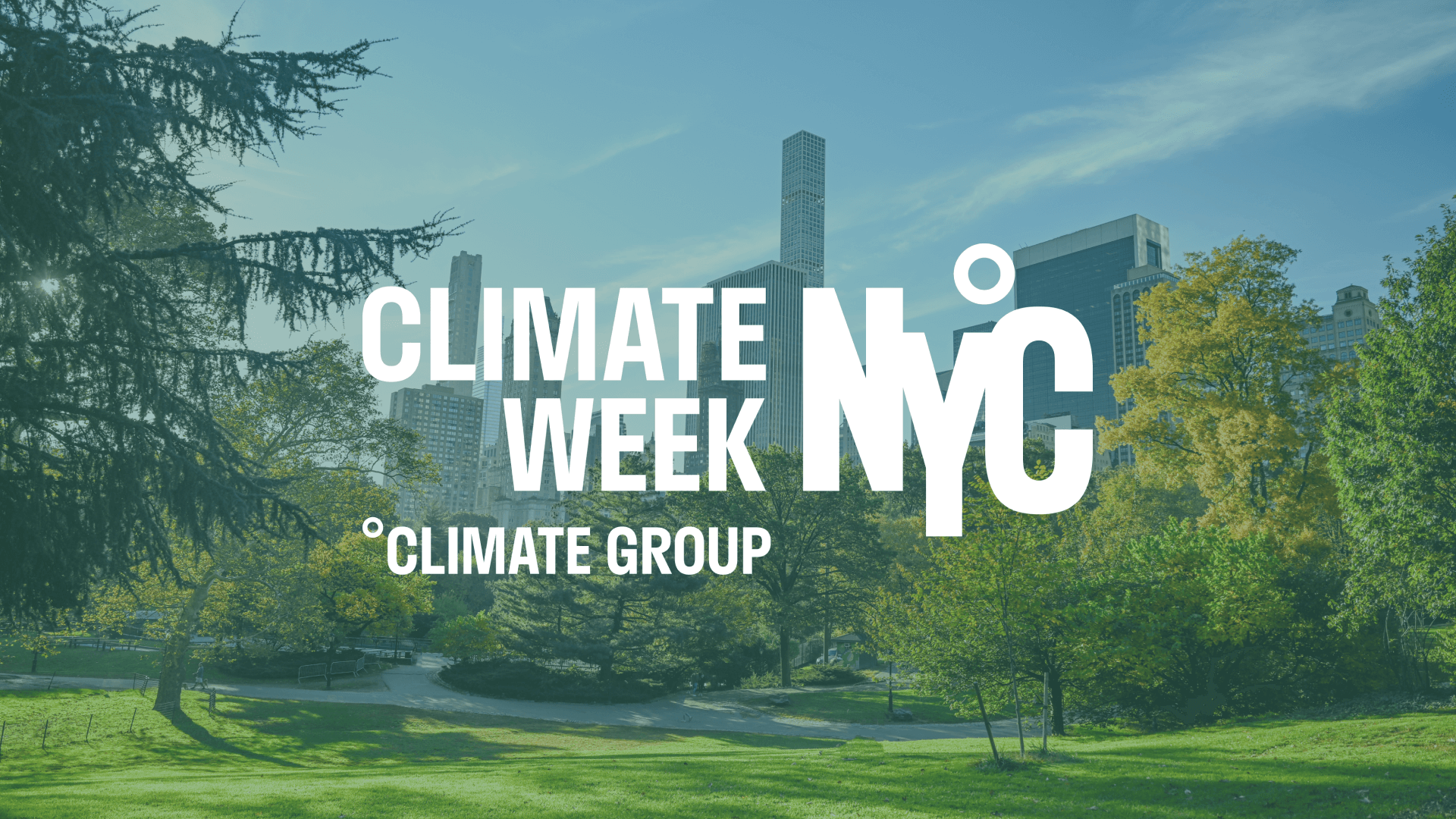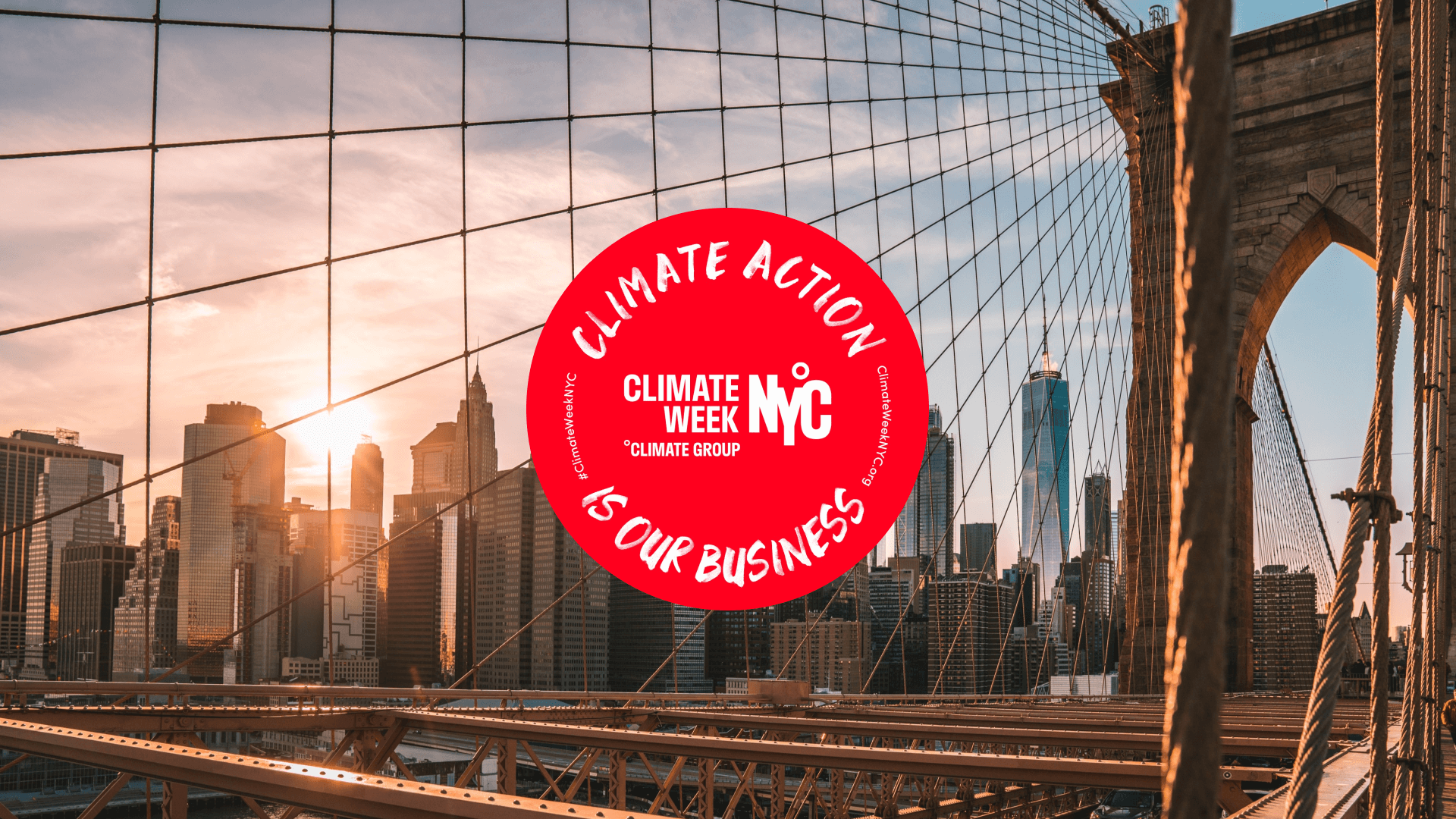
It was a feat to have COP25 organized in a new city within a month. But results fell short of even moderate expectations, and the contrast with the public energy and expectations on the street is stronger than ever. Fortunately, many initiatives took advantage of the convening opportunity to advance their agendas, including several that ClimateWorks highlighted during the COP.
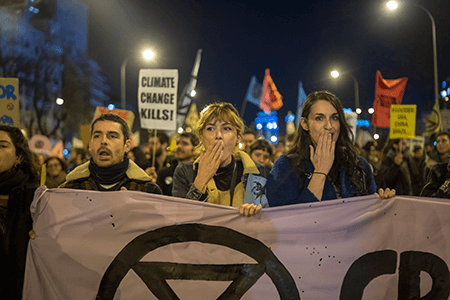
COP25 in Madrid was both impressive and underwhelming. It was remarkable that Spain and the city of Madrid managed to put it together so quickly — the venue looked like a normal COP, with pavilions and side events all in place as usual. Excellent public transportation made it easy to get around, and the city rose to the occasion, even staging a climate march with hundreds of thousands of participants.
Less encouraging were the process and outcome of the negotiations, which ran deep into overtime in an effort to salvage an acceptable text. Negotiations on carbon markets, Article 6, failed to reach agreement, and clear signals on ambition were few and far between. The two “Chile Madrid Time for Action” decisions (from the COP and the CMA) fall far short of the urgent commitments the thousands of people on the street are calling for.
The results paradoxically mean there’s both even more emphasis on COP26, and a continuing need to ensure public pressure, while not overemphasizing the role COPs can play in combating the climate crisis.
ClimateWorks at COP25
ClimateWorks and its partners took advantage of the COP to present several activities and to convene project meetings, with significant outcomes:
- The CAMDA initiative, which unites those quantifying the contribution of regions, cities, businesses, and investors to climate outcomes, convened 30+ organizations for two days. As a result, the UNFCCC secretariat committed to work toward integration of CAMDA’s results into the Marrakech Partnership on Global Climate Action, whose mandate was renewed by the COP. The COP decision included language supporting the role of non-state actors and the NAZCA portal.
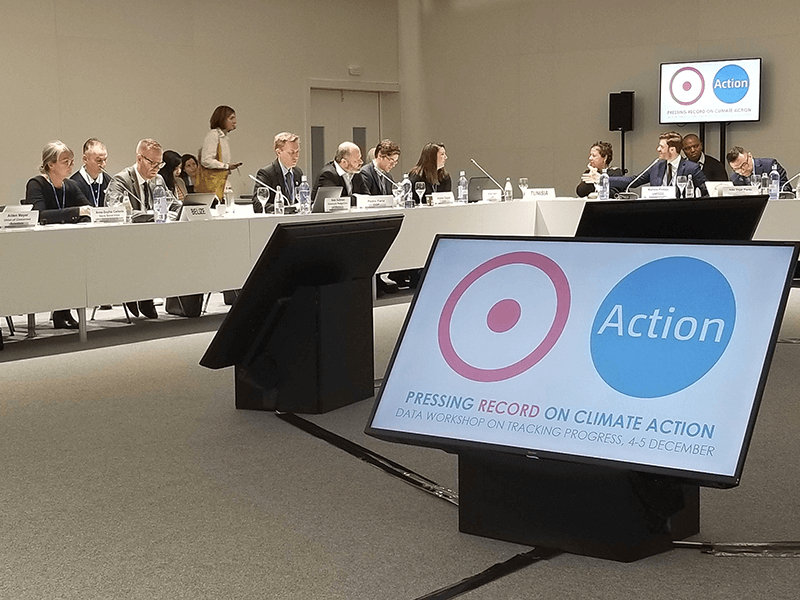
- The Independent Global Stocktake (iGST) presented its recent work at two side events and held a consortium meeting, which came on the heels of the launch of a series of discussion papers on how to design a robust Global Stocktake (GST). Plans for 2020 include broader outreach globally and further elaboration of gaps identified in the GST.
- ClimateWorks and the Pisces Foundation catalyzed the creation of the “Madrid Call for Fast Action on Super Pollutants,” which was launched by the World Resources Institute, Environmental Defense Fund, and ClimateWorks at the COP. The document, produced with the cooperation of dozens of experts in the field, identifies cuts to super pollutants as the primary means of slowing global warming in the coming decades, and calls on countries to devise Fast Action Plans on super pollutants to include in revised nationally determined contributions (NDCs) to the Paris Agreement that they will present in 2020.
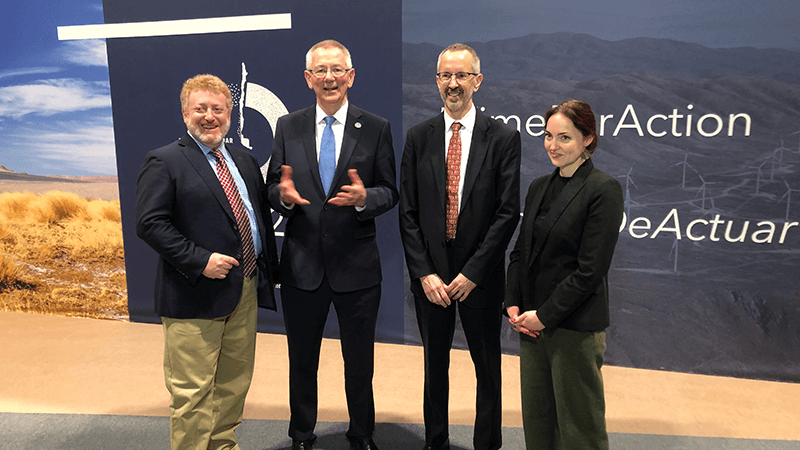
- Principles for Responsible Investors (PRI), a U.N.-backed group of investors worth $86 trillion (also supported by ClimateWorks), released a report detailing the financial losses that polluting firms are likely to face, and the uptick that clean companies will see in their overall value. This report landed with significant media coverage, including from the New York Times and the BBC, and adds to the growing pressure on big businesses to transform their practices and move away from fossil fuels.
The Road to Glasgow
COP26 is a moment when various strands should come to resolution: long-term strategies, enhanced NDCs, and the holdover of COP25 negotiations on Article 6 carbon markets, governance for loss and damage, common timeframes for NDCs, and other items.
Expectations for 2020 are high, giving COP26 a sense of elevated importance.
But to be successful, it has to match the urgency we’re seeing so many people communicating at a large scale around the world, a phenomenon that needs to see results if it is to maintain momentum.
Part of the answer is for countries to step up and deliver as expected; part is seeing the U.N. system and COPs evolve to make the best use of time and find venues that advance important issues, from accounting for non-state action, to preparing for and preventing climate disasters; and part is about continuing to diversify the targets of popular energy at all levels of governance, from the bottom up. It’s a big agenda for 2020, and ClimateWorks is proud to be working with such a thoughtful and energetic community to keep pushing forward.

